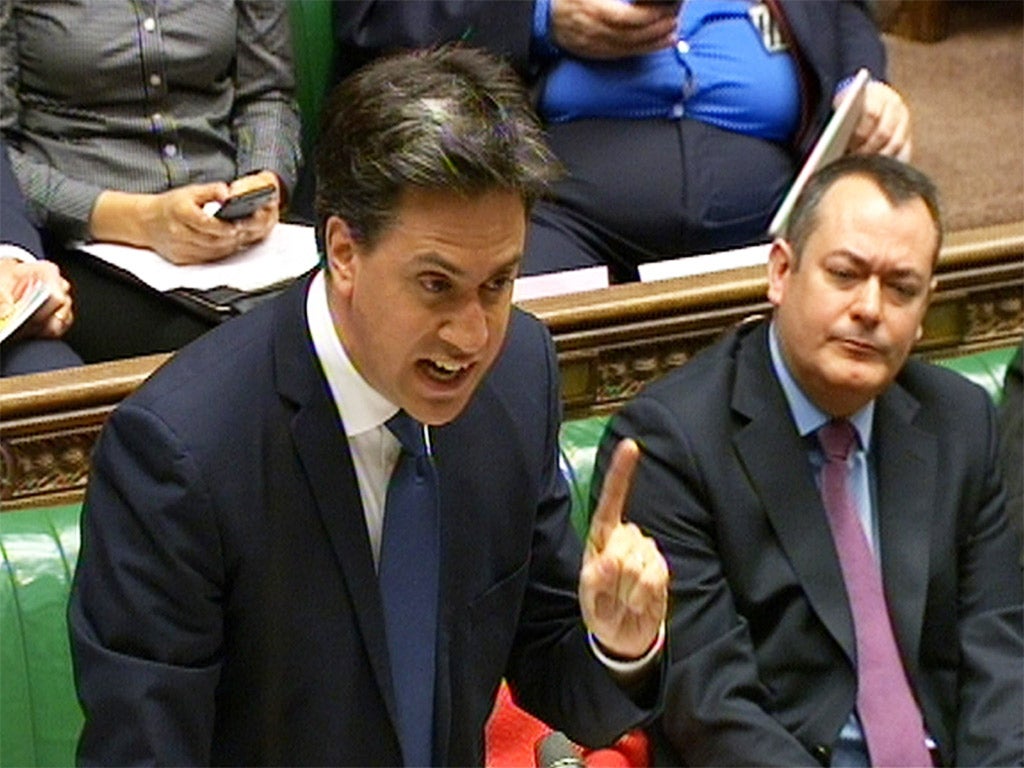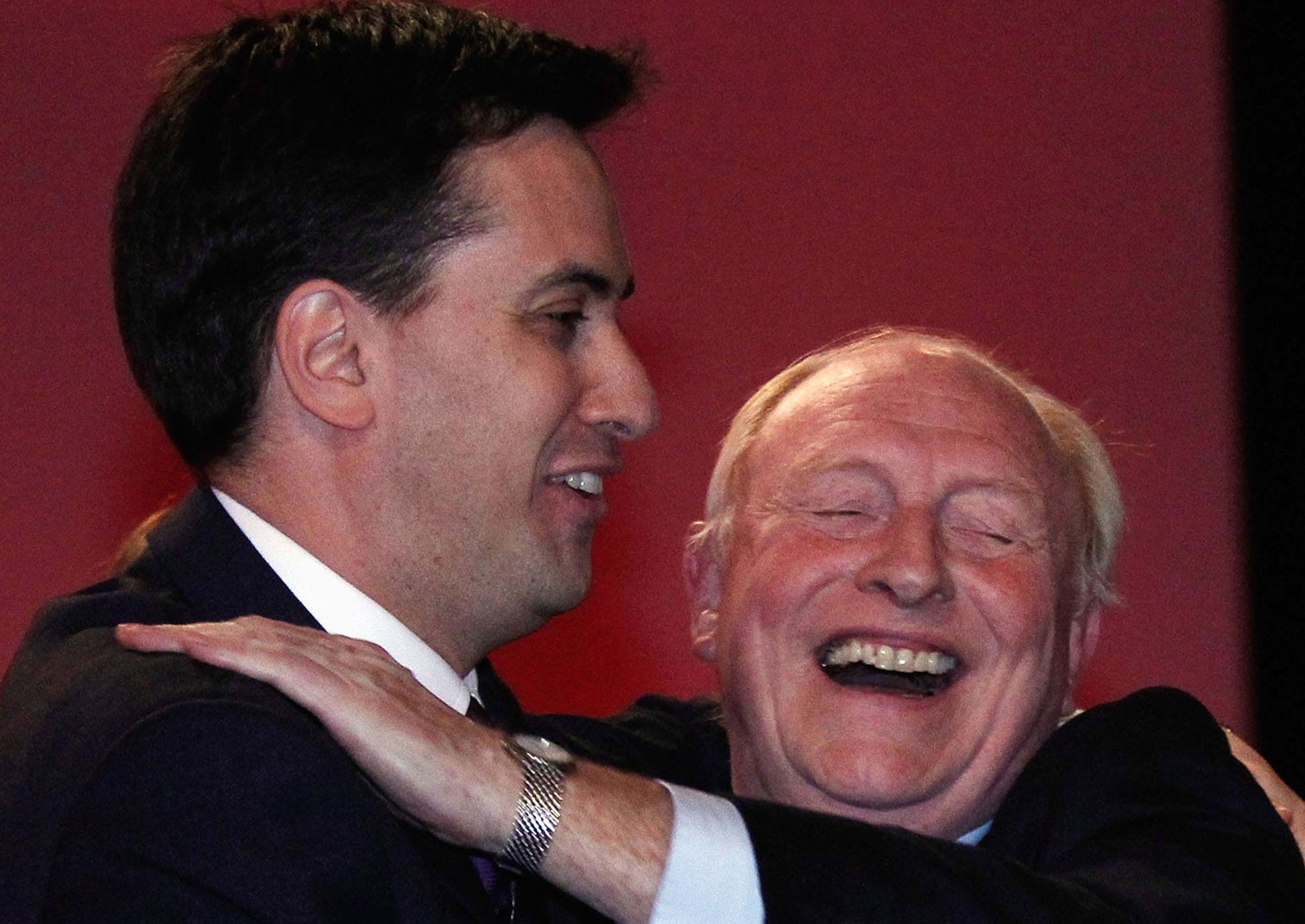Only when Ed Miliband is shaking things up is he at ease with leadership
Ed Miliband’s authentic public voice is that of the insurgent


If we did not know it already we do now. Ed Miliband’s authentic public voice is that of the insurgent leader. He becomes energised as a national figure when challenging orthodoxies and taking on powerful interests. When speaking out against tax avoidance and evasion Miliband has sprung into life, as he did when taking on the media establishment, the energy companies and the banks. Sometimes his onslaughts lack focus and detail, but they have verve and can reframe familiar debates.
More orthodox issues excite him less. During the long spells in which the media focuses almost exclusively on the need to wipe out the deficit, Miliband tends to disappear from public view. He has a moderate, expedient approach to the deficit, but evidently he is not enthused. No doubt he was alarmed when he realised he had forgotten to mention the topic in his conference speech, but only because he recognised how the omission would be perceived. In reality he knows there is more to life than wiping out the deficit.
Indeed not focusing on George Osborne’s chosen narrative about the deficit was probably the only authentic part of Miliband’s conference speech. The whimsical anecdotes about the strangers he met on Hampstead Heath arose from too many conversations with the likes of David Axelrod, President Obama’s former election adviser, who does not understand UK politics quite as much as the Labour leader thinks he does.
Apparently earlier drafts were closer to Miliband’s real voice, as were his previous conference addresses when he pledged to deal with failing markets. Only when he is shaking things up is he at ease with leadership.
This is highly unusual, a Labour leader with a chance of becoming prime minister who is impatient for radical change. Mostly Labour leaders feel the need to disguise their hunger for change, or are not very hungry for it at all. Even Neil Kinnock started to look like a bank manager in an attempt to reassure the bullying newspaper editors and the parts of the BBC inadvertently influenced by the right-wing newspapers. Tony Blair took an even more cautious approach. Here is my rough translation of the New Labour message in 1997: “The UK is the equivalent of a rotting, run-down castle. We propose to change the ashtrays”.

At times Miliband also tries to reassure those fearful of change, but he does not want to stop at changing the ashtrays. He is the rebel at the top of his party, uneasy about parts of the New Labour legacy – an opponent of the war in Iraq and Tony Blair’s assumption a Labour prime minister could never split with a US president on matters of war. When Miliband is not rebelling against orthodoxy he is less persuasive, adopting Blair-like mannerisms: the crisp white shirt, the removed jacket, the self-deprecating jokes. He is not being himself when he starts to impersonate Blair’s genius for projection.
David Cameron attempts the same impersonation of Blair. It is one of the reasons that some voters, including a significant slice of the electorate in Scotland, wrongly assume there is no difference between the two potential prime ministers.
Miliband is neither Blair nor Cameron. He has always been an instinctive insurgent. In an interview with David Aaronovitch for a TV series on the Blair era, Blair’s adviser, Sally Morgan, spoke of Miliband storming into her office and demanding to know when she and the rest of them were going to leave No 10. On matters of policy, Miliband had then and now a smart, coherent critique of some of the more superficial public service reforms of that era. When Blair was hailing mythical “choice” in schools, Miliband told friends to read a New Statesman article by the MP Jon Trickett which contained a savage assault on the proposals.
In normal circumstances there would be very big risks in having an insurgent at the top of the Labour Party, which is presumably one of the reasons why insurgents rarely lead. They are my favourite kind of politician, the ones who challenge the assumptions that go unquestioned elsewhere, who take risks as they put their case, who do not lose their convictions to the cause of expediency. We should hail them. But they tend not to be election-winners or unifiers.

Miliband has a chance to be the exception on both fronts. His voice has often been muffled in his attempts to keep his party together, while he chooses his insurrectionary moments with care. It is not the greatest risk in the world to challenge the Murdoch empire at a point when even Murdoch was forced to close a newspaper and nor is it now reckless to highlight the iniquities of tax avoidance and evasion for the very rich. Miliband is an expedient insurgent.
But now there is a twist. The nightmare for Miliband is that voters in Scotland and in parts of England continue to regard him as little different to Cameron while Middle England and its newspapers destroy him for being Red Ed. There is nothing Miliband can do now about most newspapers and voters who turned away long ago. But he has to make sure that those voters across the UK who want change from post-1979 orthodoxies at least consider coalescing around him rather than the many other options in this election.
There is a wider audience than usual in a UK election for the insurgent’s voice. Currently the SNP, Ukip and the Greens attract some of the voters who are restless for change. They would take even more if Labour’s pitch at the election were Cameron-light, a debate between two technocrats, a fight on the vaguely defined centre ground as if this were 1997. As ever with Miliband the model is Margaret Thatcher, who was famously a rebel in her own administration, often complaining to her Chief Whip about the Government’s policies and challenging the old orthodoxies to the bewildered fury of some colleagues.
Like her, Miliband’s only chance of becoming prime minister is to be who is, and not to be who he is not.

Join our commenting forum
Join thought-provoking conversations, follow other Independent readers and see their replies